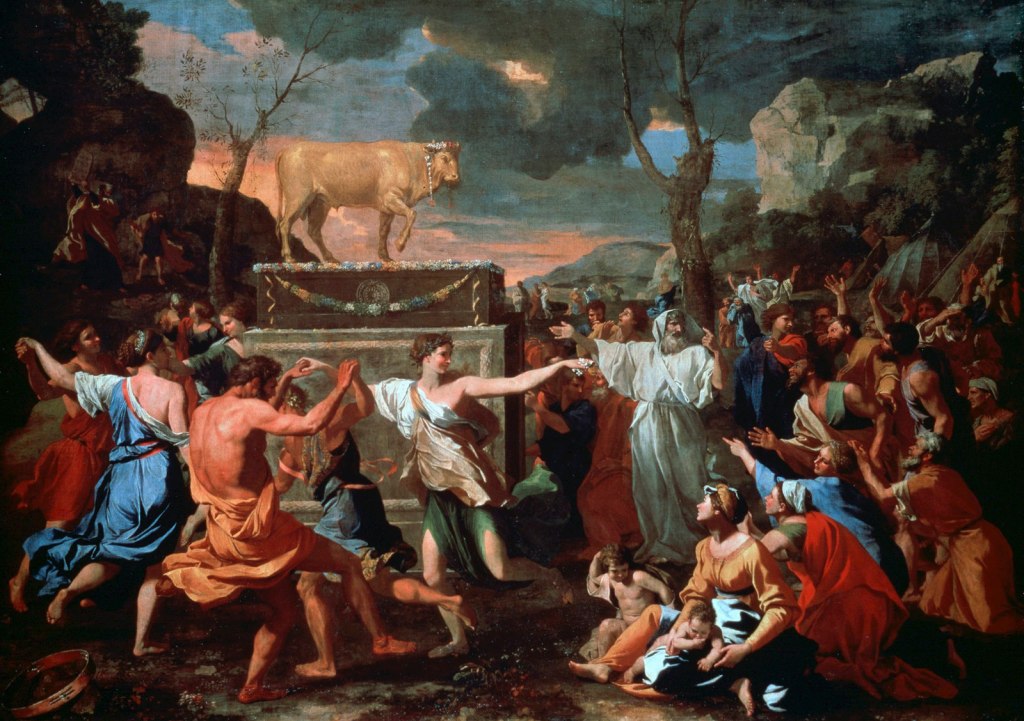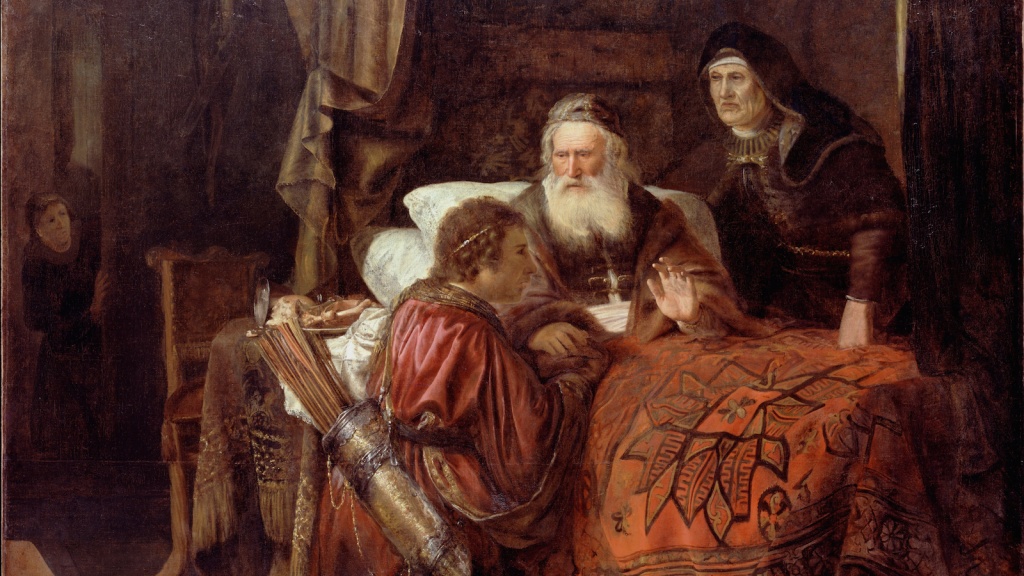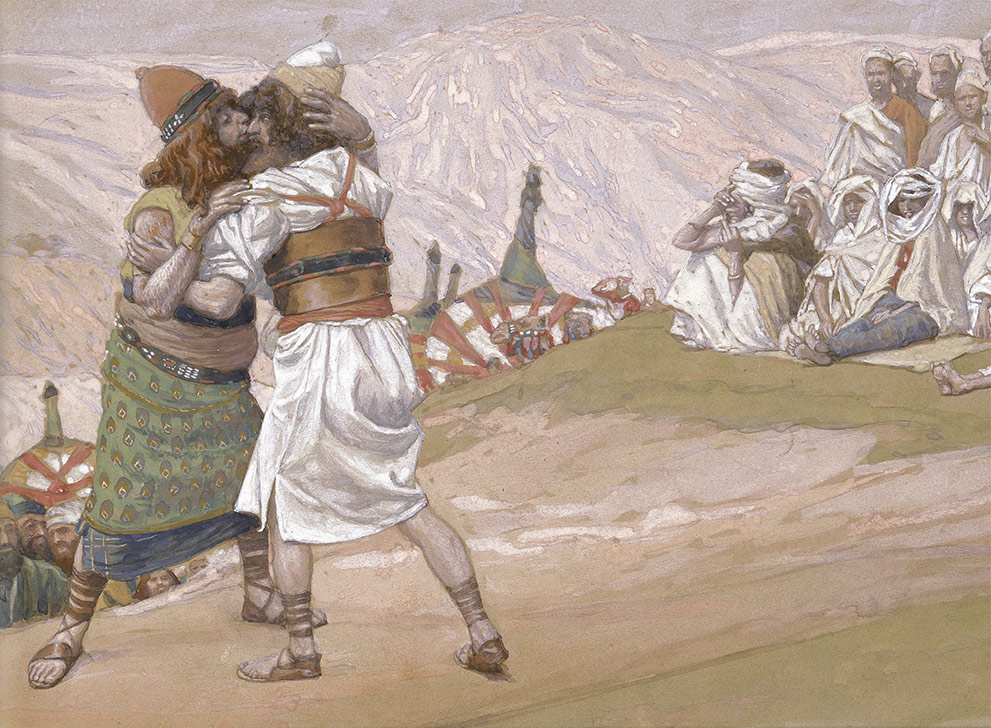
DELIVERED 10 JULY 2021 FOR REVOLUTION CHURCH
Good evening, everybody! It’s good to see all of you. I hope you all had an excellent Fourth of July.
This past weekend, one of my oldest friends from South Carolina, Mike, went to Martha’s Vineyard for the holiday with his wife and his son. Have any of you ever been to Martha’s Vineyard? I haven’t gone yet, but I’d love to. And to be honest, the reason I’d like to go is actually the same reason my friend Mike went: it had nothing to do with the Vineyard itself and everything to do with the fact that Martha’s Vineyard is where they filmed the best Fourth of July movie of all time, Jaws.

Jaws is–and I am not exaggerating here–a perfect movie. Easily a Top 10 favorite for me. And it can be easy to forget, I think, that it’s a movie about the Fourth of July. Specifically, the plot revolves around this string of shark attacks near a fictionalized Martha’s Vineyard called Amity Island and how those attacks threaten the town’s tourist economy over the holiday. Our hero is the small-town sheriff, who is just trying to figure out what’s going on, and in the first half of the movie, he’s set against the town’s sleazy mayor, who keeps trying to wish the problem away so the beaches won’t close. For a monster movie, it’s a pretty complex set up. It’s also the same basic plot as Jurassic Park.
Anyway, this past week, my friend Mike kept texting me pictures of all these filming locations–here’s the Town Hall! Here’s the dock where the guys try to catch Jaws with a turkey! Here’s the dock where fishermen bring in the big shark that is not Jaws and the mayor declares the beaches will be open! And as I got all these messages, I got to thinking more about the movie, and I realized something that I thought was kind of profound about it: Jaws is a movie about the horror of belief. The difficulty of it, not because what we’re looking for is hard to find, but because it is too overwhelming and frightening to handle. That’s the mayor’s problem in the movie, and it’s the source of most of the tension: we, as the audience, know how serious the problem is! We’ve seen the shark! But the characters have too much at stake to let themselves believe it.

I bring all of this up tonight because Jaws actually reminds me of the backstory behind our main story tonight, which is about the curious episode of the nehushtan, or the “bronze serpent thing,” in the Old Testament book of Numbers. The story itself is a pretty crazy one, and we’ll get to it in a bit: there are fiery serpents and miracles and all sorts of things. But I have come to believe that for this story to make sense, we have to go back a bit to an earlier story from the Israelites’ desert wanderings: the story of the Ten Commandments.
As a refresher, here’s how the story goes: our hero from last week, Jacob, has many sons, and among those sons is a boy named Joseph. He is Jacob’s favorite. But he is hated by his brothers. So, they conspire to sell Joseph into slavery in Egypt. This happens! But in time, Joseph’s mix of wisdom and humility allows him to rise in influence under the pharaoh. Meanwhile, a famine has struck his family’s land, and through a circuitous series of events, they go to Egypt to ask for aid. This leads to a great reunion–and great acts of forgiveness–which result in Jacob’s clan settling under Joseph’s care. But in time, Joseph and his brothers die, and new pharaohs enslave their descendents. This enslavement lasts for 400 years, until the children of Israel are vast in number. They groan in Egypt, and God hears them. God then raises up Moses to deliver them–to carry out their Exodus from Egypt–and Moses does so. After they escape, their first stop on their way back to the land of their forefathers is a place called Mt. Sinai. During this entire journey, God has led them in undeniable ways: there have been miracles and wonders galore. But at Mt. Sinai, the Israelites see a terrifying sight: the mountain looks to be on fire, with lightning flashing constantly in a cloud settled over its peak. This, they assume, must be where their God dwells. Their leader, Moses, goes up the mountain to speak with this God, whose power broke the distant pharaohs, and they wait. And they keep waiting.
In the book of Exodus, which records this story, the perspective shifts to Moses: he goes up the mountain and talks for a long, long time with God, who gives him the Laws which will govern all of Israel. But then, after 11 chapters of Law-giving, our vantage point returns to the people waiting below. And those people do a strange thing:
When the people saw that Moses was so long in coming down from the mountain, they gathered around Aaron and said, “Come, make us gods who will go before us. As for this fellow Moses who brought us up out of Egypt, we don’t know what has happened to him.”
Exodus 32:1
Here’s my idea tonight, in a nutshell: Exodus 32 is the first half of Jaws. The Israelites are the townspeople of Amity Island. Aaron is the town mayor. And God is the shark. Here’s how this works: the Israelites are scared because everything about their way of life is being threatened. Although slavery in Egypt was awful, their “deliverance,” thus far, has been an “out of the frying pan and into the fire” kind of thing. Whereas their rations as slaves were meager, their meals in the desert are nonexistent. Whereas the work their men and women did as slaves was backbreaking, the wandering they are doing now is hurting their children and their elderly. Whereas they once lived in fear of the pharaoh, who was a type of god on earth, they are now huddled under the thunder mountain, bearing witness to a power greater than they ever imagined. And with all this change, there is a big part of them that just wants to go back to the way things were; a part of them that is afraid of what is happening. And so, facing the horror of the God of their forefathers, they choose instead to believe a smaller and simpler thing. They want an idol: an idol is something they understand; an idol is something they can control. It makes their worship small, manageable…even negligible. And Aaron–like the mayor in Jaws–gives them permission not to believe the big and overwhelming and dangerous thing that’s out there in the water (or on top of the mountain). He helps them feel better about looking away from it.
But here’s the thing: God is the shark. He’s not going to go away, even if they ignore this particular problem until it swims right up and bites them in the…

The big question in the story of the golden calf, I think, is “why on earth do the Israelites build idols when God is right there?” And the answer is that God is terrifying to them. The future God is calling them into is terrifying. We want to worship what helps us feel safe and in control. But the God of the Bible just doesn’t work that way. And so the tragedy of this story is the same as the tragedy in Jaws: by denying the truth, we create the very situation which will bring us harm. The Israelites anger the God they are afraid of by avoiding him. And what, then, is the consequence for their sin? The Israelites who have given into their fear will, to a man, die in it: they will wander 40 years, until the adults who left Egypt are gone, and their children will be the ones to reach the Promised Land. Oof.
In this series this summer, one of our main questions has to do with why Israel tells such embarrassing questions about itself. This story must be one of the all-time great examples: why remember this incident? Why remember this fear? Why tell the story of their wandering at all? The answer, I propose, is because the Israelites want to remember (and teach to their children!) that the key to having a god like their God is walking in the direction of belief. Following him with small, brave steps. Being patient, and refusing to waver. They want their children to know that belief doesn’t make life easier. They want their children to know that real belief takes a lifetime.
As I said a while ago, this is all backstory for the main event tonight, which is the story of the nehushtan. This story is also part of the narrative of the Israelites’ desert wandering, and it comes not from the book of Exodus but from the book of Numbers. We find it in chapter 21, and it starts like this:
They traveled from Mount Hor along the route to the Red Sea, to go around Edom. But the people grew impatient on the way; they spoke against God and against Moses, and said, “Why have you brought us up out of Egypt to die in the wilderness? There is no bread! There is no water! And we detest this miserable food!”
Numbers 21:4-5
It’s a familiar refrain for anyone reading through the long narrative of this season in Israel’s history: yet again, the people are frustrated and impatient with their journey. Yet again, they cry out to Moses and complain to him about God. Yet again, they say things were better when they were in Egypt. Which means that yet again, they have forgotten about the shark: they want to keep the metaphorical beaches open for the metaphorical Fourth of July. But this decision bites them! In the next verses, we read that
the Lord sent fiery snakes among them; they bit the people and many Israelites died.
Numbers 21:6
The word “fiery” here most nearly means “venomous,” in case your imagination was taken with the idea of fire-snakes. I don’t want any of you who have a snake phobia to freak out: there probably weren’t literal snakes of fire. But nonetheless, their complaining has a consequence: God allows them to be bitten and poisoned. Then,
The people came to Moses and said, “We sinned when we spoke against the Lord and against you. Pray that the Lord will take the snakes away from us.” So Moses prayed for the people. The Lord said to Moses, “Make a snake and put it up on a pole; anyone who is bitten can look at it and live.” So Moses made a bronze snake and put it up on a pole. Then when anyone was bitten by a snake and looked at the bronze snake, they lived.
Numbers 21:7-9
That bronze snake on a pole is the “nehushtan,” a word which literally means–and I’m not joking–“bronze thing.” And as we just read, after Moses builds it, people look at it, and they are healed.
It’s a strange story, right? It’s brief: that’s the whole thing. And it doesn’t seem to make much sense…unless you connect it back to that story of their time under Mt. Sinai. Here’s what I mean: once upon a time, the people built idols because they were afraid of their God. The idols gave them something else to look at, something else to believe, which was smaller and more manageable and less frightening. This was idolatry, not because the people made a tangible idol, but because they were trying not to believe in what was right in front of them. They were choosing something–anything–to look at and trust that would be altogether less terrifying than looking at and trusting the actual God who was delivering them. That was their sin: it was the tragedy of looking away, of prolonging their disbelief.

And so it’s profoundly meaningful, I think, that God redeems that story here by giving them this strange chance to try again. It’s as if God is saying, “is the problem that the mountain was too scary? How about a bronze thing, a nehushtan? What form of mine will you accept, will you look at? I want you to see me, to trust me.” After all, that’s the crisis this is all in response to, right? The Israelites keep looking back at Egypt! They keep trying to run away from God. But God must be faced…because God is really there. You can pretend there’s no shark if you want…but there actually is!
So, here’s the wrinkle from this particular story then, right? Numbers tells us that many Israelites died. Which means that, even when presented with this second version of the golden calf, this new way of facing up to the God who is in control of their destiny, there were those–“many” of them!–who still would not look. They were too stubborn, too independent, too doubtful. Or maybe…they were still too afraid.
The revelation of the nehushtan story–the reason, I think, that it keeps being told, over and over again, by the Israelites–is that it exposes the truth behind the Isrealites’ tendency towards idolatry: they don’t make idols to fill the space created by the times God is silent. They don’t make idols because they believe other gods are better than the God who pursues them. They make idols because they’re afraid of a God who is too constantly and too undeniably present with them. They’re afraid of a God who is real and powerful and demanding of them. They’re afraid of a God of miracles and plagues and rescues and wonder. They’re afraid of a God who will overwhelm them. Who will swallow them up. An idol is a child, afraid of judgment, refusing to look its mother in the eyes.
But if they could look at their God–if they could look at the bronze thing their God has made in order to better relate to them–what would they actually find? What would happen? It would be their rescue.
I said at the beginning that this story–and yes, Jaws, too–is about the horror of belief. We can, and probably should!, get a lump in our throat when we consider how all-encompassing our relationship with God is supposed to be. But unlike that giant shark, getting swallowed up by God leads not to death but to new and abundant and overflowing joy and life. It’s a deliverance: from the harmful messes our stubbornness and our willfulness and our denial and our fears create for us. All we have to do…is have the courage to look up. To have the audacity to hope.
The story of the nehushtan is a “middle chapter” in the Bible: the story of the golden calf, there beneath Mt. Sinai, is its prequel, and we need to know that story to make sense of this one. But it also has a sequel, too, right? If the nehushtan is this symbol of deliverance God has created specifically out of his desire to relate to the people he is pursuing…it is also a foreshadowing of the Cross. Jesus is the perfect nehushtan: the person of God made flesh, made relatable, made knowable…and, in his death, lifted up so that anyone and everyone who looks up at him–who faces up to the scope and scale and power and majesty and commitment of God to his Creation–will be saved. What does that most-famous of Bible verses, John 3:16, actually say about Jesus?
“For God so loved the world that he gave his only begotten son, that whosoever believes in him will not perish, but have everlasting life.”
John 3:16
We look at Jesus, and we believe. That’s the pathway not to death–which is what it certainly looks like!–but to everlasting life. The challenge for us, as we think about and respond to these stories, is not a simple one, but it is a direct one: are we willing to turn away from the idols we make to avoid thinking about the overwhelming love of God and instead look up at him, facing our fear, and finding new life in its place?
Maybe our idol is work, or family, or money, or distraction, or the fantasy of control over our own lives. Maybe it’s a perpetual state of “doubt” we are trying to stay in…which is just a desire for control by another name. But here’s the thing: God-sized beliefs can’t be figured out from the sideline, and they can’t grow without risk. At some point, you have to get in the boat and set out to sea. It’s not that you’re looking for the shark…He will find you! It’s that you are saying that you’re done with the lie that you can run away forever. You’re done with pretending God is anything less than the overwhelming Lord of all things. And you’re ready to look up at him, wonder at him, and begin to believe.




